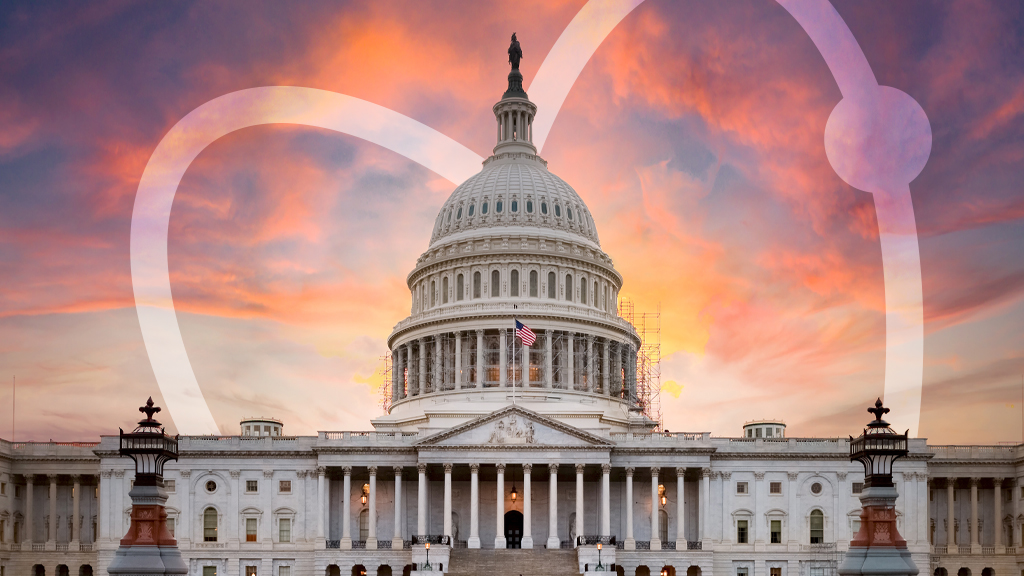Legislative Update
Federal Government Shutdown Looms; Impact of the 2023 Elections; U.S. Dept of Ed Launches New PSA Campaign Elevating Teaching Profession
By Ralph Forsht, Manager, Advocacy and Legislative Affairs
Posted on 2023-11-15

Disclaimer: The views expressed in this blog post are those of the author(s) and do not necessarily reflect the official position of the National Science Teaching Association (NSTA).
UPDATE 11/16/23: CR Passes House and Senate
The House of Representatives passed a funding measure – a Continuing Resolution (CR) – on November 14, 2023. The bill enjoyed broad, bipartisan support, as the measure passed by a 336-95 vote in the House. The U.S. Senate considered the same funding legislation and passed the CR by a 87-11 vote on November 15, 2023. President Biden will sign the legislation into law before the end of this week. The CR will keep the federal government open and operating through January 2024.
Here We Go Again: Another Threat of a Federal Government Shutdown
Congress narrowly avoided a federal government shutdown seven weeks ago, when then House of Representatives Speaker Kevin McCarthy (R-CA) cut a last-minute deal to avert a large closure. That action ultimately led to McCarthy losing support within the House Republican caucus, which ousted him. What followed was 21 days of uncertainty. The 21-day gap was the longest that Congress has been rudderless since 1962, when it took 55 days to elect a Speaker. The House finally elected a new Speaker: Representative Mike Johnson (R-LA).
The new deadline to avert a federal government shutdown is November 17, when the existing Continuing Resolution (CR) expires. Speaker Johnson has floated different options to keep the government operating, but his conference remains sharply divided. During a leadership meeting last week, Johnson floated a “laddered CR” that would extend funding for four bills through December 7 and the rest through January 19. After meeting with the GOP conference, Johnson said that a stopgap bill running into January “with certain stipulations” is also on the table. Those stipulations remain undefined.
To date, not one of the 12 separate appropriations bills has cleared Congress and been enacted into law. The spending bill that funds the U.S. Department of Education is so controversial that it hasn’t even been approved by the full House Appropriations committee. Under Speaker Johnson’s direction, GOP leaders plan to send the measure straight to the floor, where Republicans could be asked to officially vote in support of cutting the Education Department’s budget by more than $12 billion, or 15%. The measure would also cut funding by nearly $15 billion, or 80%, for the Title I grant program that helps schools serving a high percentage of low-income students. For many Republicans in competitive congressional districts, this potential vote could help to end their congressional careers.
The Senate bipartisan spending bill that funds the Education Department slightly increases spending for public education through emergency spending measures. It’s pending before the full Senate.
Both Democrats and Republicans in the Senate are much more open to negotiating a bipartisan compromise to fund the federal government.
2023 Elections: Impact on State Education Policies
A number of states held important elections recently that will affect how certain states address education policies and what that likely means for teachers.
In Louisiana, Jeff Landry (R) won the state’s open gubernatorial primary in October. Landry’s campaign centered on teacher recruitment and retention, school choice, and high school graduation requirements.
Incumbent Kentucky Governor Andy Beshear (D) won a second term. Beshear is expected to increase his efforts to improve teacher recruitment and retention, as well as increase funding for postsecondary and workforce programs.
Mississippi Governor Tate Reeves (R) won a second term. Reeves is expected to continue efforts to expand career and technical education, improve literacy and numeracy rates among elementary school students, and recruit and retain additional teachers.
In addition, four states—Louisiana, Mississippi, New Jersey, and Virginia—held elections for both of their legislative chambers this year. Louisiana and Mississippi retained Republican majorities in their states, while Democrats control both legislative bodies in New Jersey and Virginia. Democrats regained majority control of the Virginia House of Delegates through last week’s elections, while in New Jersey, Democrats maintained majority control.
In addition to changes in leadership, several education-related initiatives were on the ballot that could significantly impact education policy and funding for many states. Read about those ballot measures here.
U.S. Department of Education Launches New PSA Elevating Teaching and Teacher Diversity
Last week, the U.S. Department of Education launched its campaign to elevate the teaching profession and promote teacher diversity. The campaign titled “Teachers: Leaders Shaping Lives” is headlined by a new Public Service Announcement (PSA) developed in partnership with TEACH.org and One Million Teachers of Color. The goal of the PSA is to inspire more talented people—especially those from underrepresented communities—to become teachers, while also elevating the teaching profession and celebrating our teachers. To watch the PSA, click here. Read more about the campaign here.
Stay tuned for more advocacy and policy updates in future issues of NSTA Weekly.
The mission of NSTA is to transform science education to benefit all through professional learning, partnerships, and advocacy.


